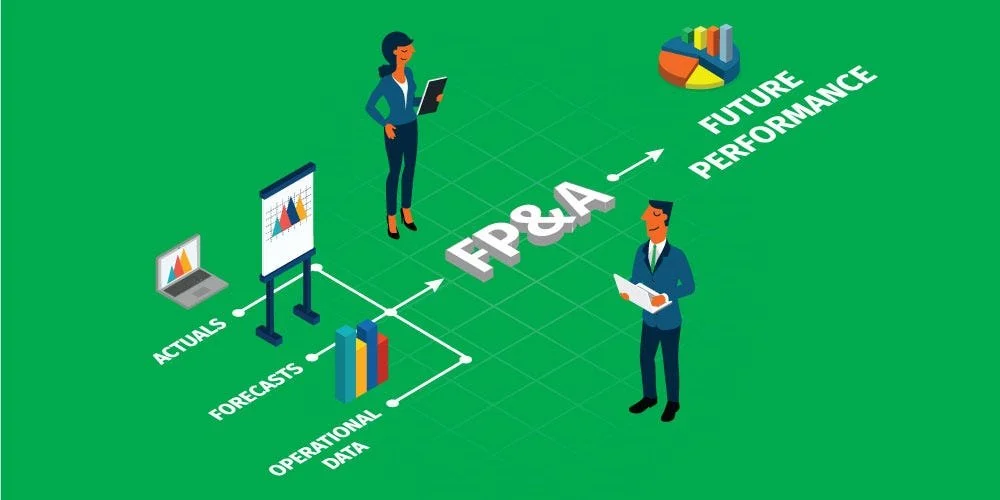10 Essential FP&A Skills Every Finance Leader Needs in 2025
Financial Planning & Analysis (FP&A) is no longer just about crunching numbers. CFOs and finance leaders expect FP&A teams to be strategic partners who can deliver real-time insights, support business agility, and guide decision-making in uncertain times.
As finance functions continue to evolve, these 10 FP&A skills are critical for success in 2025 and beyond.
1. Financial Modeling That Drives Decisions
Financial modeling remains the foundation of FP&A. The difference today is flexibility. CFOs need models that adapt quickly — whether it’s a 5% drop in sales, a new market entry, or a shift in product pricing. Driver-based, transparent models that tie the income statement, balance sheet, and cash flow together are a must.
2. Agile Budgeting, Forecasting, and Scenario Planning
Static annual budgets are out. Rolling forecasts and scenario planning give organizations the agility to pivot as conditions change. FP&A professionals must master these techniques to help leadership prepare for multiple outcomes and stay ahead of risks.
3. Advanced Data Analysis and Insights
Raw data doesn’t influence decisions — insights do. Analysts must learn to filter out noise, identify key trends, and translate them into recommendations that improve business performance. In today’s fast-paced environment, turning data into strategy is one of the most valuable FP&A skills.
4. Technology, Automation, and AI Proficiency
Finance leaders are investing in AI-driven FP&A tools to speed up processes and reduce manual work. From advanced Excel functions to ERP integrations and generative AI tools like ChatGPT, professionals who embrace technology can automate routine tasks and focus on high-value analysis.
5. Business Intelligence and Visualization Tools
FP&A analysts must be fluent in Business Intelligence tools such as Power BI or Tableau. Interactive dashboards and real-time reporting empower leaders to make data-backed decisions faster. Pairing technical knowledge with good design principles ensures financial insights are not only accurate but also easy to digest.
6. Storytelling With Data
CFOs don’t just want reports; they want answers. By connecting financial performance to business outcomes, FP&A professionals can frame insights around three critical questions: What happened? Why did it happen? What should we do next? Data storytelling transforms numbers into influence.
7. Strategic and Capital Planning
Finance must do more than track performance — it must shape the future. Strategic planning skills enable FP&A professionals to align resources with long-term business goals. Capital planning, in particular, ensures investments are tied to sustainable growth.
8. Risk Management and Problem-Solving
Volatility is the new normal. Skills like variance analysis, stress testing, and contingency modeling allow FP&A to anticipate risks and provide proactive solutions. Analysts who frame challenges alongside opportunities stand out as trusted advisors.
9. Communication, Collaboration, and Business Partnering
The best FP&A professionals aren’t siloed in finance. They partner with sales, operations, HR, and marketing to provide relevant insights in plain language. Strong communication and collaboration skills build trust across the organization and position FP&A as a strategic partner, not just a reporting function.
10. Continuous Learning and Adaptability
With automation and AI reshaping the finance landscape, the only constant is change. FP&A professionals who invest in continuous learning, certifications, and leadership skills future-proof their careers and bring innovation back to the organization.
Why These Skills Matter for CFOs in 2025
CFOs are under increasing pressure to deliver accurate forecasts, manage risk, and support growth initiatives. An FP&A team equipped with these skills gives leadership the confidence to make bold, data-driven decisions.
At Quantum FBI, we help organizations modernize their finance functions — from ERP implementations to real-time FP&A reporting. Our experts partner with CFOs to transform financial data into actionable intelligence.
Ready to build an FP&A team that drives strategy, not just reporting? Talk to a Quantum FBI advisor today.
Explore how our Fractional CFO and FP&A services can help your business stay ahead in 2025.
Download our free Finance Transformation Checklist to benchmark your finance function’s maturity.


